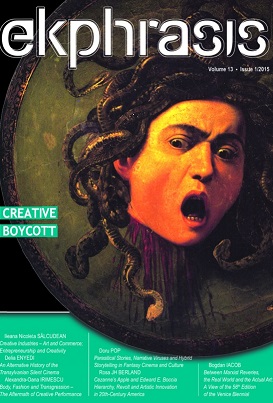Is Artistic Genius a Myth?
Is Artistic Genius a Myth?
Author(s): Raluca Mihaela PARASCHIVSubject(s): Fine Arts / Performing Arts
Published by: Universitatea Babeş-Bolyai, Facultatea de Teatru si Televiziune
Keywords: creativity; genius; artist; myth
Summary/Abstract: Where do new ideas come from? What is the inception point for innovative ideas and how and why do some change in order to become valuable and influential works? Can one trace the antecedents of creative discoveries in order to understand how their authors came to make them? Can these questions be answered or artistic genius is an unexplainable myth? This paper will start with the generally accepted definition of the term genius, and then give an overview of the major theories attempting to explain it in order to move on to a few considerations on what happens with the myth of genius nowadays. Attempts to explain the nature of genius date since the time of Plato, whose doctrine was centered on the artist-demiurge endowed with divine reason, able to bring order into chaos. The Renaissance view opposed this stance with the artist as God, a creator that makes something out of nothing. Romanticism linked genius to notions of pain and suffering, melancholy, madness and death, ideas that are often accepted by popular belief as being related to the nature of tormented contemporary geniuses such as Kurt Cobain or Amy Winehouse. From Eureka moments to manic-depression, from favourable context to beneficial influence of family and education, from simple chance to divergent or lateral thinking, each theory of creativity adds little pieces to the puzzle of what we think we know about genius. This paper inclines towards narrowing down the essence of genius at the level of the work of art, suggesting the creative product as the key to our understanding of culture.
Journal: Ekphrasis. Images, Cinema, Theory, Media
- Issue Year: 13/2015
- Issue No: 1
- Page Range: 36-46
- Page Count: 11

